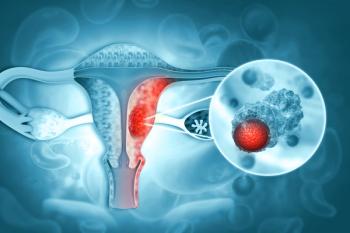
Semaglutide Shows Enhanced Weight Loss in Postmenopausal Women on Hormone Therapy
During menopause, up to 70% of women experience weight gain due to aging, estrogen decline, a decrease in energy and a decrease in spontaneous physical activity energy.
Postmenopausal women who are overweight and on hormone therapy experience more significant weight loss with the GLP-1 receptor agonist drug semaglutide compared to those not on hormone therapy, according to a recent study published in
During menopause, up to 70% of women experience weight gain due to aging, estrogen decline, a decrease in energy and a decrease in spontaneous physical activity energy, the
This transition is also associated with body composition changes, such as increased fat mass, decreased lean mass, and more body fat, overall.
These changes can increase the risk of developing cardiovascular and metabolic diseases including type 2 diabetes, dyslipidemia, metabolic dysfunction-associated steatotic liver disease (formerly nonalcoholic fatty liver disease) and cardiovascular disease (CVD) after menopause.
Menopause hormone therapy has shown potential in partially reducing these changes as has semaglutide, a GLP-1 receptor agonist, which is approved for treating overweight and obesity. Semaglutide achieves an average weight loss of 15% over 68 weeks compared other anti-obesity medications, authors of the study shared.
Due to the lack of studies comparing weight loss outcomes with antiobesity therapies, including semaglutide among postmenopausal women with and without hormone therapy use, the researchers conducted this cohort study with the intention to compare weight loss response and changes in cardiometabolic risk markers in postmenopausal women using semaglutide with and without hormone therapy.
The study included postmenopausal women and a retrospective review of electronic medical records (EMRs) from the Mayo Clinic Health System.
Researchers examined patients using semaglutide who were overweight or obese between January 1, 2021, and March 31, 2023. Researchers compared weight loss outcomes and changes in cardiovascular and metabolic risk factors between postmenopausal women with and without systemic hormone therapy.
Menopause was defined as women aged 40 years and older with 12 months or more of no menstrual period .
Women in the no-hormone therapy group never received systemic hormone therapy, while those in the hormone therapy group had started their hormones before semaglutide initiation at three months use or more and continued throughout the treatment.
The study included 16 women on hormone therapy and 90 women not on hormone therapy ranging from 48 to 64 years old. The hormone therapy group ranged from 51 to 67 years old.
Women on hormone therapy showed higher total body weight loss percentage (TBWL%) at 3, 6, 9, and 12 months compared to those not on therapies.
For example, after 3 months, women on hormone therapy lost about 7% of their weight, while those not on hormone therapy lost about 5%. After 6 months, women on hormone therapy lost about 13% of their weight, while those not on hormone therapy lost about 9%. After 9 months, women on hormone therapy lost about 15% of their weight, while those not on hormone therapy lost about 10%. Lastly, after 12 months, women on hormone therapy lost about 16% of their weight, while those not on hormone therapy lost about 12%.
Both groups showed improvements in cardiometabolic risk markers.
The strengths in this study include the fresh efforts to evaluate semaglutide's impact on postmenopausal women with or without hormone therapy and shares crucial data on cardiovascular and metabolic risk markers relevant to menopausal weight and health management.
However, limitations exist.
The study's design can't confirm direct links between hormone therapy and semaglutide effects or reduce other influencing factors.
While there are significant weight loss differences, the small sample size could impact the bigger picture or simply generalize results. In addition, with most participants being white, educated and financially stable, the findings may not apply to a wider population.
To discover a better relationship between hormone therapy use and weight loss response to semaglutide in postmenopausal women, researchers suggest that future studies should incorporate the age at menopause, type of menopause, the duration and dose of hormone therapy use; data on sleep quality, quality of life and more factors.
In addition, researchers suggest further studies investigate if there are differences in weight loss response to antiobesity medications among premenopausal, perimenopausal, and postmenopausal women not using hormone therapy.
Newsletter
Get the latest industry news, event updates, and more from Managed healthcare Executive.























